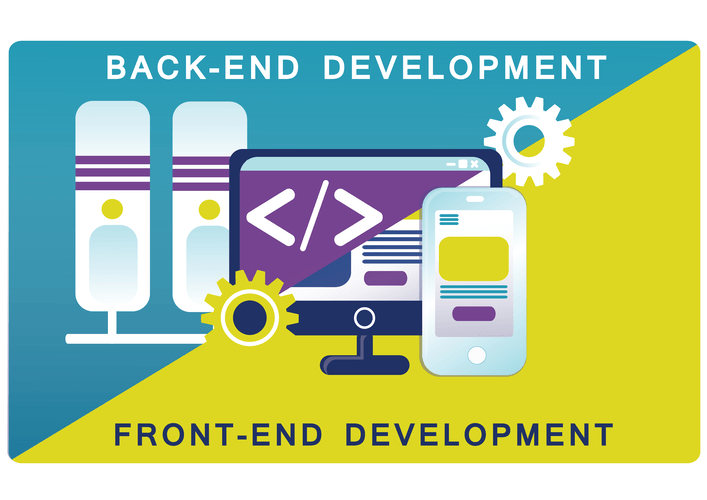4 Emerging Technologies In The Financial Services Industry
Content
10x Banking won the Fintech Awards 2021 Best Next Generation Banking Platform (U.K.). In May 2022, the company announced a strategic partnership with Westpac to launch a market leading transaction banking platform for the bank’s institutional clients. Founded in 2015, Varo initially partnered with Bancorp Bank to provide services, and in 2020 went on to become the first consumer fintech to receive a national bank charter from the Office of the Comptroller of the Currency. The company’s founder and Chief Executive Officer Colin Walsh leads its mission to fight systemic financial inequality and bring access to banking services to all. CURO Financial Technologies has spent 25 years providing services to the underbanked, offering full-spectrum consumer credit lending to U.S. and Canadian customers. The NYSE-listed CURO operates a number of brands in North America, including LendDirect, Flexiti, and Covington Credit.

Finastra is a global provider of financial software applications and marketplaces, and launched the leading open platform for innovation, FusionFabric.cloud, in 2017. Its pioneering approach and commitment to open finance and collaboration is why it is trusted by roughly 8,600 institutions, including 90 of the world’s top 100 banks. Fintech, or financial technology, refers to the technological innovation in the design and delivery of financial services and products. Technology in finance continues to evolve; advancements include the use of Big Data, artificial intelligence , and machine learning to evaluate investment opportunities, optimize portfolios, and mitigate risks. With billions of dollars to be made, it’s no surprise that machine learning has played an increasingly important role in fintech — and in trading specifically.
Zilch Ceo Belamant: Fomo Has Rival Companies Rushing Into Bnpl
This can result in a greatly simplified audit process because RPAs will log and store all data without the complication of silos, human error, or differences in how teams log and collect data. Savannah State University is a proud partner of the Georgia FinTech Academy, an online talent development platform developed through collaboration with the University System of Georgia and Georgia’s FinTech industry leaders. Courses and programs developed through the FinTech Academy allow learners to access the specialized educational experiences necessary to enter the FinTech sector regardless of geographic location. More than 1,100 global customers, including 800 institutional investment firms and Fortune 500 companies, use its platform to surface, visualize, and share the insights that give them an edge. Founded in 2012, Sentieo is the recipient of many industry awards, such as inclusion on Deloitte’s 2021 Technology Fast 500 list and winning Best Research Management Solution in the HFM European Technology Awards 2021. Paga is a London-based mobile payment company building an ecosystem to simplify financial access for its users, enabling them to send and receive money, as well as pay bills and top up mobile airtime and data.

Kyriba is the San Diego software development company behind the revolutionary Active Liquidity Network, the cutting-edge real-time platform that enables companies to activate their liquidity for increased growth and value. The company’s clients enjoy a scalable SaaS platform powered by AI and designed to promote growth opportunities while providing top-notch transaction security. Gusto is one of the top figures in cloud-based financial services, providing its partners a wide variety of software solutions for payroll, benefits, and human resource management. The company works with entities across the United States to navigate the complicated world of payroll and benefits while adhering to all national and local tax and labor laws. No other company in the fintech sector has as large and dynamic a partner ecosystem or R&D/services team as Guidewire, the software company relied upon by 450 insurance carriers for property and casualty management needs.
Born as Neteller out of a merger among similar companies in 1996, Paysafe took its current name in 2015 as part of its continued worldwide expansion. However, many experts expect this to be just a momentary slowdown for the industry, and some see it recovering and nearly tripling in size by 2028. In order for companies to get their share of this growth and find success, they will need great ideas and talented people to make them happen, and all of the companies on this year’s list have demonstrated they have both. The Financial Technology Report is pleased to announce The Top 100 Financial Technology Companies of 2022.
The HFTP Academy is where professionals enhance their careers with globally recognized professional education programs. The Academy offers hospitality-specific certificates and certifications such as the CHAE and CHTP. To provide an on-campus experience that bonds students to Duke and to each other, the online program includes three residencies—at the beginning, mid-term, and end of the program.
Master Of Science In Digital Financial Technologies Fintech
Mesh upended the stagnant corporate card market with its real-time, insights-driven corporate spend management platform. Mesh is purpose-built to save finance managers valuable time, automate manual processes that weigh down finance teams today and give CFOs the insights they need to better manage day-to-day financial operations. Founded in 2016 by Chief Executive Officer Antony Jenkins CBE, the company’s goal is to become the global banking core operating system of choice.

With corporate headquarters in North Carolina, the company has worldwide offices in Italy, France, and the U.K. It also boasts accolades such as inclusion on the IDC Financial Insights Fintech Ranking Top 100. Sentieo, an AlphaSense company, provides the first financial intelligence platform specifically designed for the research needs of investors. Sentieo’s AI-powered financial search engine aggregates internal and external content into a single shared workspace for a more efficient research process. Backed by Franklin Templeton, investors in Propel’s portfolio startups include BlackRock, QED, Khosla Ventures, Founders Fund, Draper Fisher Jurvetson, and Data Collective Ventures. Propel portfolio companies have cumulatively raised over $2 billion from the Propel platform and other sources.
Here, the largest challenge is in delivering consistent quality in external processes such as chatbots, where some institutions often come up short. Many organizations also face issues relating to siloed data sets, regulatory compliance issues, and fear that AI won’t do the job, which is why many integrate solutions with manual regulation and management to prevent machine error. This just means that the role of new technology in financial services could be delayed based on the apprehension of financial institutions. Technological disruptions over the last few decades have changed how we communicate, talk, make purchases, and do business. Emerging technologies in the financial services industry have consistently disrupted how consumers interact with their money, what they expect from financial institutions, and how those organizations operate.
Blockchain Technology In Finance
Marcus—named after Marcus Goldman, one of the founders of Goldman Sachs—has positioned itself as a simple, accessible online bank that gives people added control over their finances. In fact, it doesn’t have any physical branches, just mobile apps on the Apple App Store and Google Play. It has an approachable, “can-do” brand image centered on helping people achieve financial well-being and more wisely manage their money, but it doesn’t offer as many types of financial products as other online banks. Power recognized its personal loans as No. 1 in personal loan customer satisfaction in both 2019 and 2022. Advancements include the use of robo-advisers, Big Data, AI, and machine learning to evaluate investment opportunities, optimize portfolios, and mitigate risks. In the area of financial recordkeeping, blockchain and distributed ledger technology are creating new ways to record, track, and store transactions for financial assets.
Initial coin offerings are a new form of fundraising that allows startups to raise capital directly from lay investors. In most countries, they are unregulated and have become fertile ground for scams and frauds. Regulatory uncertainty for ICOs has also allowed entrepreneurs to slip security tokens disguised as utility tokens past the SEC to avoid fees and compliance costs. Entrenched, traditional banks have been https://globalcloudteam.com/ paying attention, however, and have invested heavily into becoming more like the companies that seek to disrupt them. For example, investment bank Goldman Sachs launched consumer lending platform Marcus in 2016 and recently expanded its operations to the United Kingdom. Examples of fintech applications include roboadvisors, payments apps, peer-to-peer lending apps, investment apps, and crypto apps, among others.
- Here, the largest challenge is in delivering consistent quality in external processes such as chatbots, where some institutions often come up short.
- SSU students, regardless of major, are able to seamlessly register for these classes through our institutional banner system without any transient admission requirements.
- Mesh is purpose-built to save finance managers valuable time, automate manual processes that weigh down finance teams today and give CFOs the insights they need to better manage day-to-day financial operations.
- Wisconsin-based financial technology service multinational Fiserv has seen its fortunes continue to rise in the nearly four decades since its founding.
- Students will learn about cutting-edge technologies in digital payments such as blockchain, popular AI machine-learning techniques, as well as the financial knowledge required to work in the industry.
The SEC fined the firm $980,000 and they had to pay $7 million to California’s Department of Insurance. While that segment of fintech may see the most headlines, the big money still lies in the traditional global banking industry and its multi-trillion-dollarmarket capitalization. The Bali Fintech paper offers a high-level framework for countries to consider and to tailor fintech applications to national circumstances, and recognize that their individual approach to fintech may vary depending on the type of financial services. Financial technology — fintech — is creating new opportunities and challenges for the financial sector – from consumers, to financial institutions and new entrants, to regulators.
Types Of Fintech Startups And Companies
In addition to offering working capital and spend management solutions, the company provides a platform for embedded finance, enabling partners to offer the same services to their own small business customers. Clients want and deserve the best in overall investment banking services, industry knowledge, relationships and senior level experience. In the complex financial technology sector, we believe no other firm offers a higher set of skills, expertise and mission critical advice to leading CEOs and industry decision makers. When you want to explore your firm’s full potential, consider FT Partners’ full suite of strategic and financial advisory services. With years of transaction experience on some of the largest transactions in history, we bring our unique approach to your firm to maximize value to your shareholders. Employing more than 200 people with clients in 18 countries worldwide, the firm offers more than two decades of experience in financial institution digital transformation, with services ranging from client lifecycle management to portfolio management.

Graduates of the program will be ready to immediately apply their skills to solving financial technology challenges in the real world. While blockchain is one of the hottest emerging technologies in the financial services industry, it’s not yet readily accessible. Some organizations are developing wider solutions, but most banks that are implementing blockchain solutions (including checking, money processing, trade finance, etc.) are doing so on their own.
This report develops the context and means to address challenges for organizations in the investment industry over the next 5–10 years. Investors of all ages and from all regions want more technology applied to investing, and trust in technology is generally high. The effective use of technology increases trust in a financial adviser or firm, and new blockchain technology holds the promise of creating more trust in the system. Increasingly focused on customer outcomes, the desired outcome of fintech is the ability to provide tailored, actionable advice to investors with greater ease of access and at lower cost. Blockchain — a public ledger capable of recording the ownership, origin and movement of digital assets — will continue to impact the financial industry. For starters, the ledger technology and proliferation of smart contracts will greatly help with making the industry more secure and efficient.
Trends In Emerging Technologies In The Financial Services Industry
The fact is that consumer-oriented fintech is mostly targeted toward millennials given the huge size and rising earning potential of that much-talked-about segment. Some fintech watchers believe that this focus on millennials has more to do with the size of that marketplace than the ability and interest of Gen Xers and baby boomers in using fintech. Rather, fintech tends to offer little to older consumers because it fails to address their problems. As such, loan originator Upstart wants to make FICO obsolete by using different data sets to determine creditworthiness.
Data scientists, who are increasingly present at investment organizations, analyze datasets , apply coding/programming skills and modern analytical techniques to databases to seek meaningful patterns and insights, and communicate relevant findings. They provide support and advice to relevant teams within the organization fintech industry overview and develop tools and dashboards to enhance/enable improvements to the overall investment process. And if recent venture capital investments in fintech startups — which reached an all-time high in 2021 — can be considered a vote of confidence, the industry will continue to expand for years to come.
Its mission is to connect and power an inclusive, digital economy that benefits everyone, everywhere by making transactions safe, simple, smart, and accessible. San Jose online payment solution great PayPal is celebrating another year of breaking down financial barriers for its users. AI is being used to analyze investment opportunities, optimize portfolios, and mitigate risks, among many other functions, but the applications go well beyond the investment decision-makingprocess.
Since then, the startup has grown to more than 800 people with offices in 13 countries, and offers a platform that digitizes and connects everything that happens between a buyer and a seller, anywhere in the world. Founded in 2001 in Lawrenceville, New Jersey, Billtrust provides a payment cycle management program designed to automate every step in the order-to-cash process. The publicly-traded company employs more than 700 people and is led by Flint Lane, its Founder and Chief Executive Officer. Born out of lending difficulties that arose in the wake of the 2008 financial crash, Funding Circle was founded in 2010 and has been used to aid more than 122,000 small businesses in securing the loans they need to survive and thrive. The London company’s team has brought over $18.4 billion in financial backing to small businesses operating in all sectors. Developed by Frederik Pfisterer and Eugene Danilkis, who previously constructed microfinance infrastructure in Latin America and African markets, Mambu has built critical partnerships with major finance institutions including N26 and Solarisbank.
Wefox is an independent insurance broker that leverages AI to help people seeking insurance quickly and easily find the coverage they need at a price they can afford. The firm was awarded 2021 EMS Best Platform Adaptability and Overall Outperformer in The TRADE’s Leaders in Trading Awards and has donated more than 10,000 hours of volunteer time since 2013 through its Give Back program. The company is still commonly known by the name under which it was founded in 2005, Digital Risk. Over the last two decades, the business has grown from a tiny team to a staff of thousands of mortgage and technology experts, all dedicated to pursuing the goal of making mortgages safe and easy. Although Monzo has faced some challenges entering the U.S. market, this year has seen the company redouble its efforts on that front, partnering with Sutton Bank to offer new debit and prepaid cards, including the unique World Elite Debit Mastercard.
Welcome To Hospitality Financial & Technology Professionals
Roboadvisors, such as Betterment, utilize algorithms to automate investment advice to lower its cost and increase accessibility. Eric is a duly licensed Independent Insurance Broker licensed in Life, Health, Property, and Casualty insurance. He has worked more than 13 years in both public and private accounting jobs and more than four years licensed as an insurance producer. His background in tax accounting has served as a solid base supporting his current book of business.
